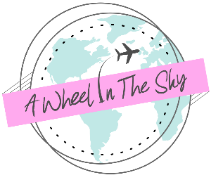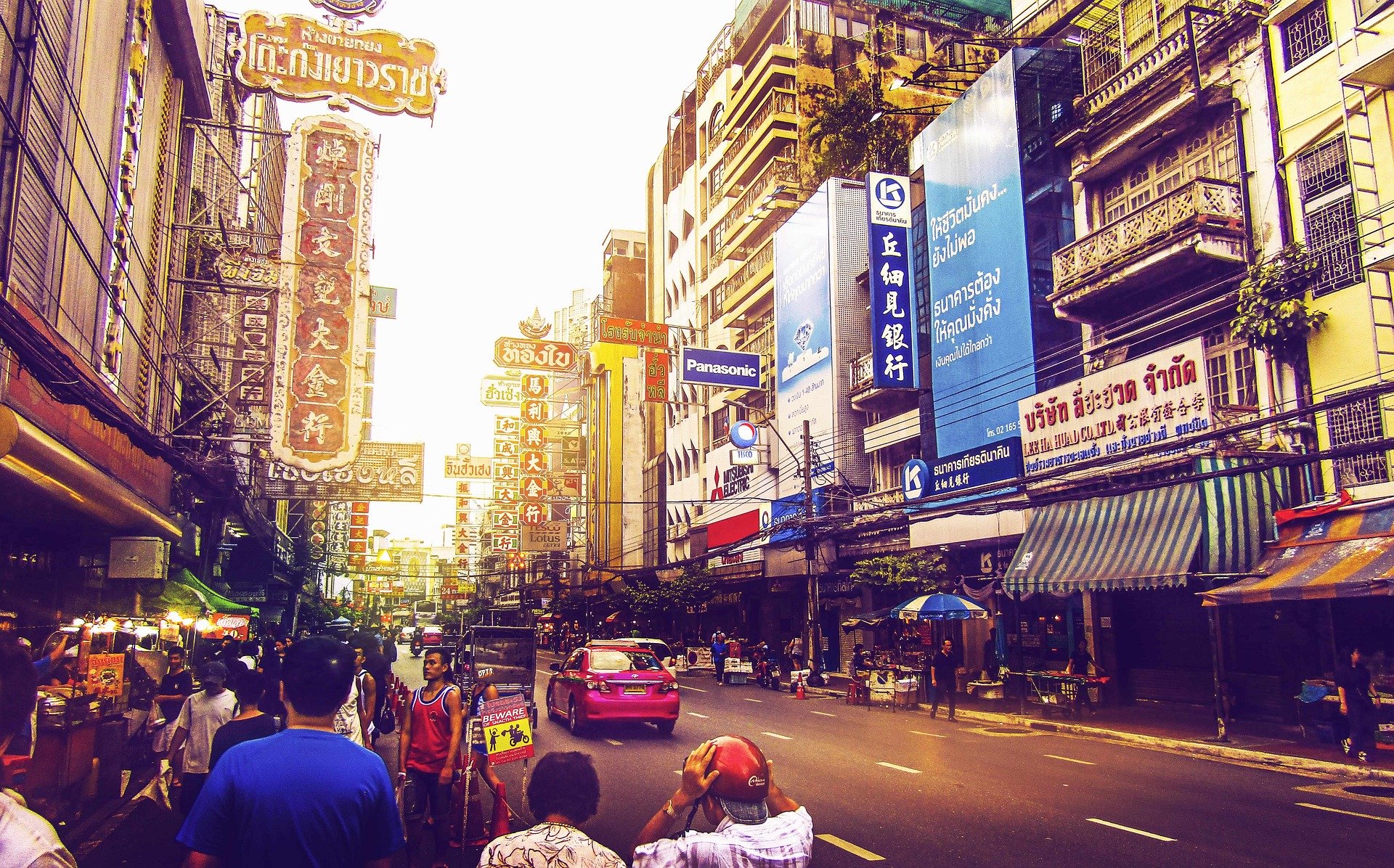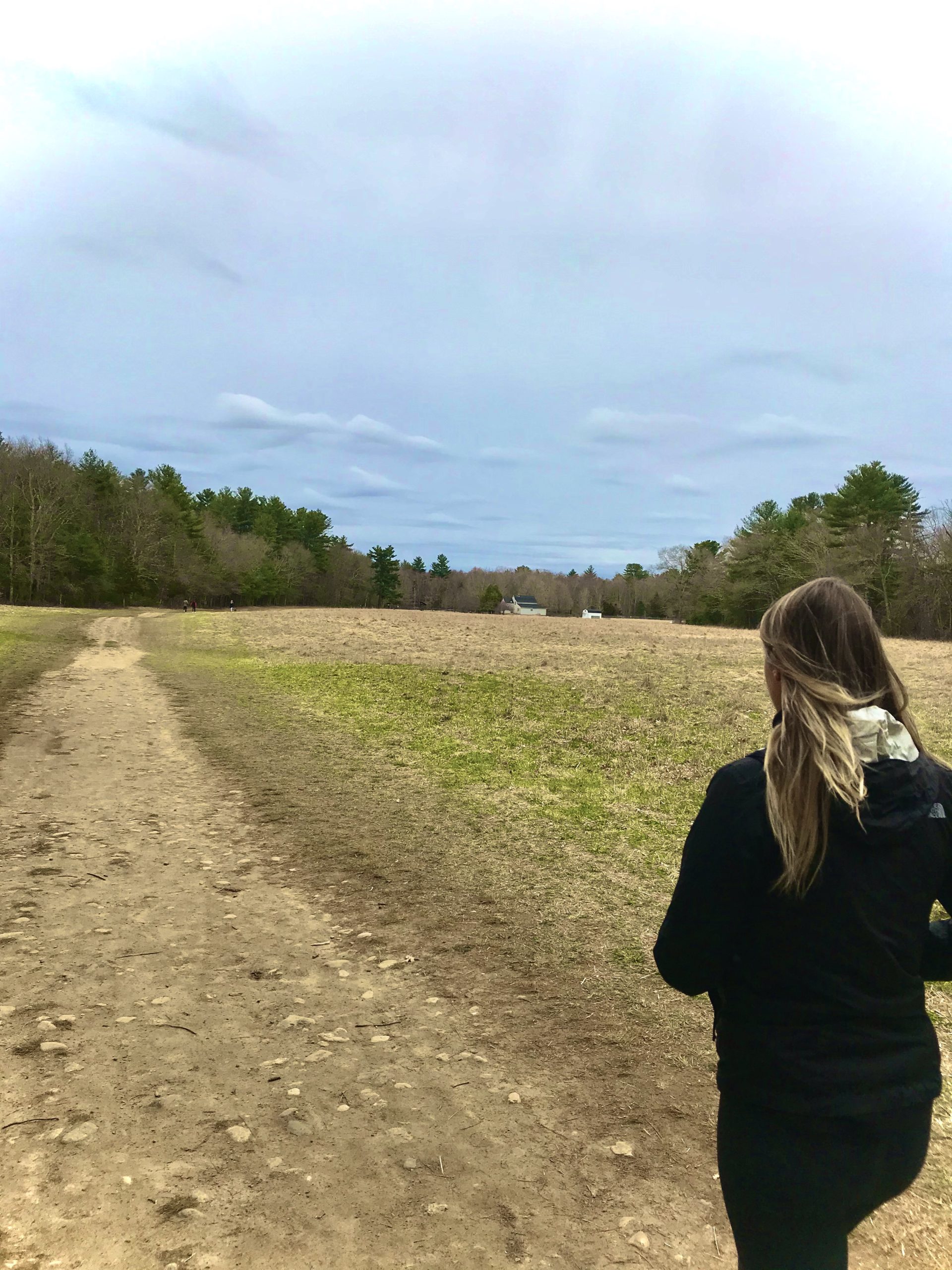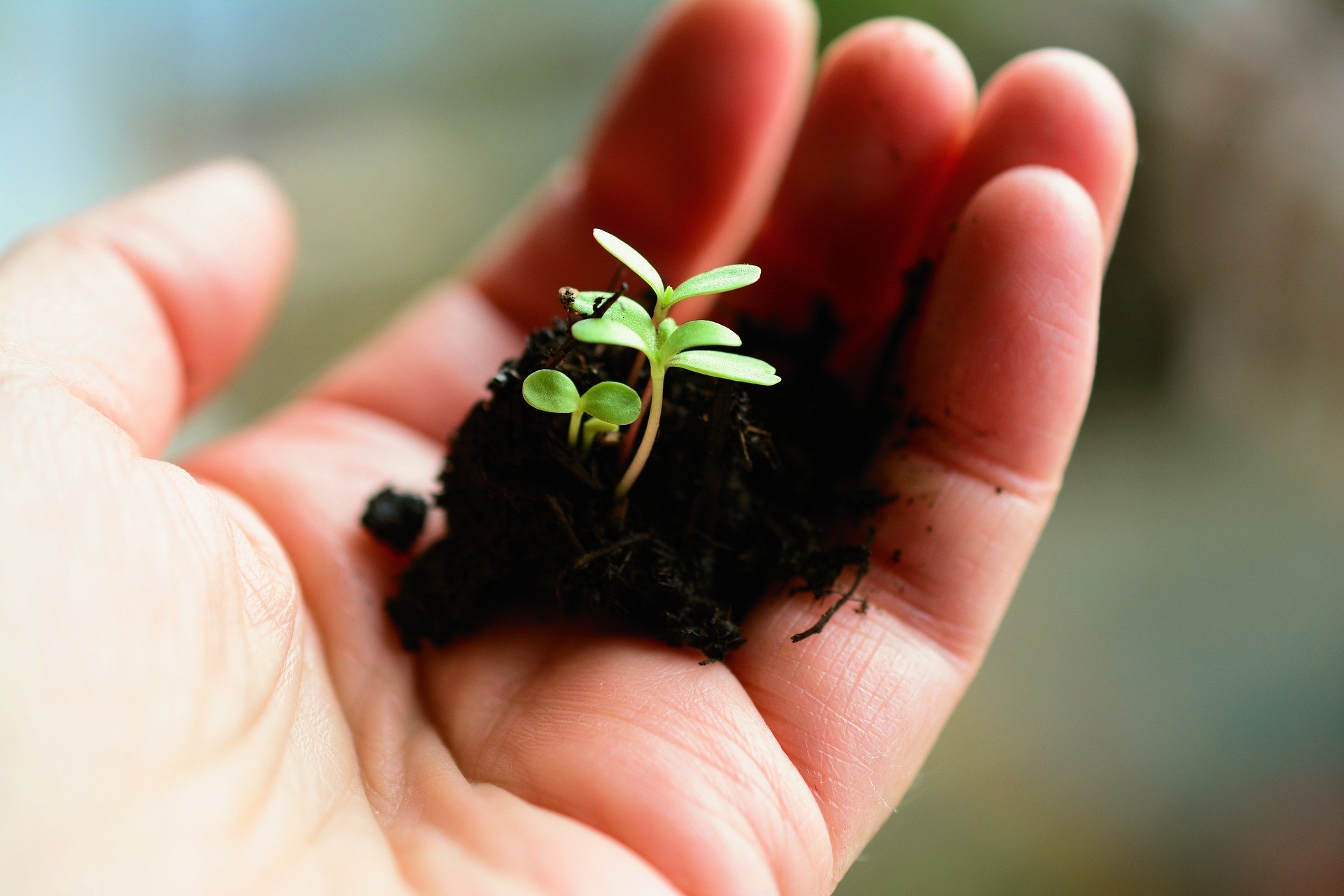
We’re weeks into social distancing, with each day bringing more stringent restrictions to back an ever-growing infection rate of the Coronavirus. Countries have closed their borders. Curfews have been enacted with fines for noncompliance, and in Hungary, the president has sured up an extraordinary amount of power, now ruling by decree with little democratic oversight. This is not to mention the lives lost, the transformation of many of our great cities into crisis zones.
I worry. That people aren’t taking this seriously enough. That this will last a long time. That the president will somehow try to suggest or force his will that an election should not happen. (Laugh it off, then read the news from Hungary. Then check out the calculated dismissal of nearly every body or person charged with oversight throughout this administration’s history and especially right now with the CARES Act.) I’m sad for the trauma the world is going through. The ache of the people dying alone in rooms, for the ache of their families unable to see them one more time except through a phone screen on video chat. I worry that life will not go back to the way it was and will be forever changed.
In some ways this last thing gives me hope. I’ve been trying to look at these uncertain times as “forced opportunity”, to see the silver linings in the blackest clouds. And I’m hopeful that this whole vicious thing can give all of us some new perspective. These bubbles of hope, these tiny glimmering opportunities for a better society post-pandemic are things I keep coming back to. And since we’re all in this together—now and hopefully later too—I wanted to practice some community spread, in the most positive way possible.
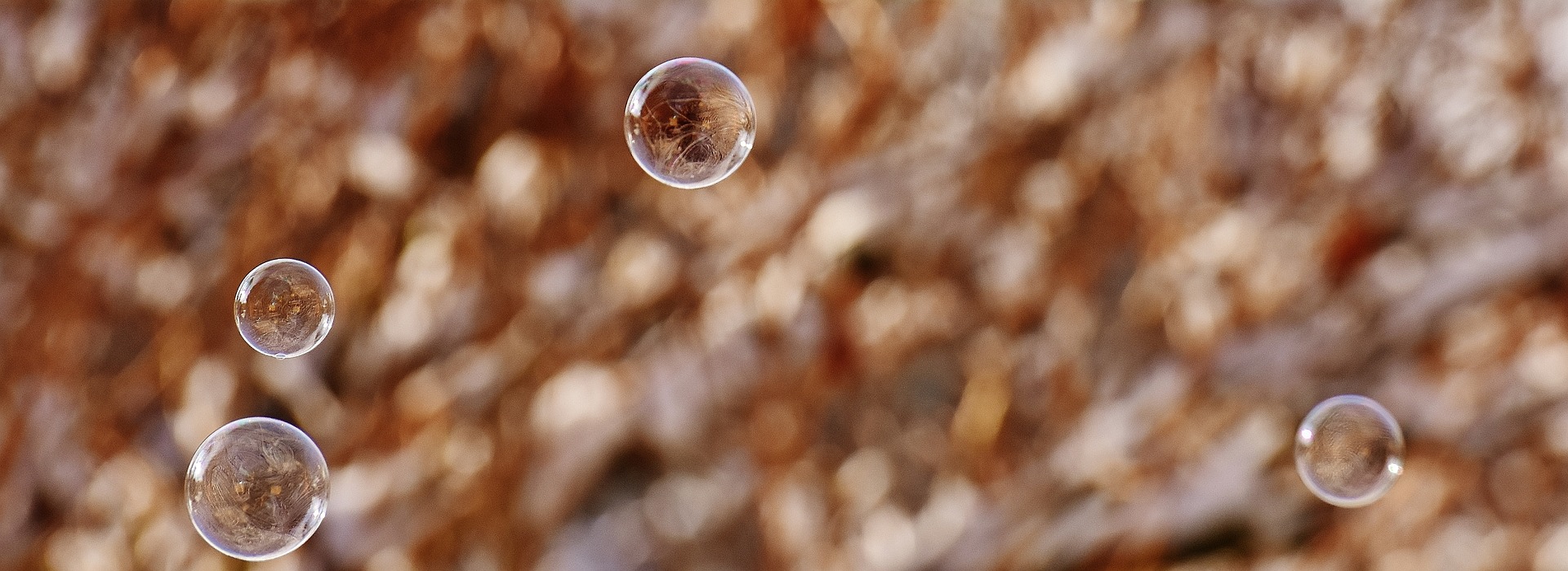
The essential workers keeping this nation going right now are not day traders or CEOs. They’re not moguls or professional athletes. They’re nurses and grocery store clerks and transit workers and police officers, and even flight attendants and pilots, I guess. I keep thinking about these grocery store workers and the cashiers at CVS and the employees of stores like Home Depot and Target and Walmart who are putting themselves at risk every day to keep the rest of the American public fed and stocked and feeling some semblance of normalcy. “At least I can go to the grocery store.”
Aviation, the field in which I’m employed, is risky business. Consolidation and furloughs and a flexible, sometimes unpredictable schedule mean job insecurity as a rule, and not an exception. I feel for the medical professionals being forced to work under substandard conditions without necessary precautions because of a lack of preparedness. And while I think they are the real heroes here, I am trying to delicately highlight the fact that some positions, some industries, are wrought with inherent risk. Being a healthcare worker right now is difficult and it is a noble feat to care for the sick. But exposure—to some degree—is part of the risk.
Right now we are in a situation where large swaths of our lowest paid, least benefitted workers, are on the front lines. Grocery store workers making minimum wage, with not just inadequate, but NO protective equipment provided. I can’t help thinking that the burden placed on these people’s shoulders is heavier than what it ought to be. They didn’t sign up for this. They’re not receiving hazard pay. And as far as I can see on the split screen between airports and grocery stores—the only two places that bring me out of the house—grocery stores are a far more likely source of spread. A more dangerous place to be.
These people so often overlooked, deemed undeserving of basic necessities like sick pay, health insurance, a living wage, are the ones ensuring our orderly continuance. My hope is that people in these “menial jobs” will acquire not only a bit of respect (that they’ve surely earned through this crisis) but also those basic necessities of security. I want narratives equating power and wealth with superiority to shift. I want people’s eyes to open, for their hearts and minds to change about who the real heroes are in America. For us to decide collectively that a sea of small voices warrants as much attention as a loud, deep-pocketed interest. For perspectives to shift on who deserves a seat at the table. Because these people really fucking do.
I guess my hope, far-reaching as it may seem,
Is that we come out of this better humans.
Continuing on this thread, I hope that people’s hearts and minds change and that we accept and embrace the obvious conclusion—evidenced so well by COVID-19—that paid sick leave is not just good for the worker receiving it, but for the good of the entire community. People unable to stay home and recover when they are sick put everyone else at risk. If you don’t have it in your heart to believe that all people are inherently deserving of basic human needs like recovering from illness without losing their home or their kids going hungry, then maybe this line of thinking, “community spread”, will be the reason you advocate for all workers getting paid sick time.
I hope we can be kinder to one another. There is nothing like an indiscriminate infectious disease to show you that you’re no better than anybody else. I hope this builds empathy. For while you, with your health insurance or personal wealth may be able to get tested earlier, receive results faster, and begin a treatment regimen right away (and actually afford it) many of our most vulnerable don’t have the resources to do so. Coronavirus is sweeping through homeless populations. As with every disaster, it’s hitting poor people with greater magnitude than the affluent. You get better healthcare when you have money. I know some of you don’t believe it a fundamental human right to receive healthcare, and this is what that model looks like:
People with less money are less deserving to live.
Someone fed you that idea. Maybe a parent. Maybe a political affiliation. Maybe a narrative of laziness you’ve heard along the way. I’m very sorry for you if this is how you see the world, and if this is how you judge yourself; Your value as a person based solely on the contents of your wallet. Each human being has intrinsic value in that they are a living breathing member of this species—this adaptable, earth-dwelling miracle of a species. Even you.
I hope when all is said and done and this great, tragic catastrophe is over, that we continue to look out for each other, the way healthy people shuttering indoors have shown care for the more vulnerable in our population. I hope that we don’t instantly move away from each others’ needs, from this collective spirit, once life resumes and we are free visit fancy restaurants and crowded malls and group gym classes. Because some small signs, like the nightly cheering for essential workers, point to the fact that we really do have it in us to band together. That the human spirit contains so much good, just waiting for an excuse to break free and show itself.
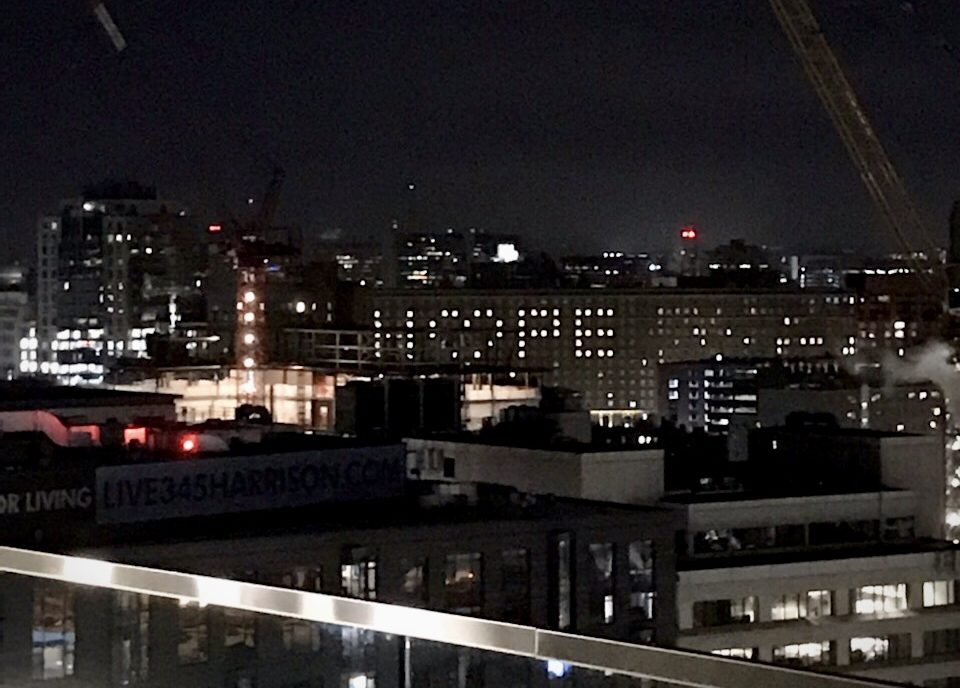
Small signs of hope in Boston
I hope that people can see the underlying truth that consumerism isn’t god, and the stock market isn’t god, and the people who tinker with these imaginary, created systems (built as a way for people with money to make more money) are not gods either. The free market didn’t save us from Coronavirus, and likely nothing would have in this age of great, vast globalization. And now, with it closed down, except of course for the goliaths like Amazon and Walmart, we begin to see that our basic necessities, our human needs, and what had been our everyday life as Americans, don’t necessarily match up.
Buying for the sake of buying doesn’t keep us warm or fill our bellies or feed our souls. It doesn’t help sick relatives, it doesn’t shelter you from illness. Stuck in quarantine, social distancing, we’re experiencing a taste of a simpler time. We’re cooking at home, sitting down at dinner tables. The noise and rumble of day to day life has all but stopped and we’re living in quiet. Our thoughts, anxieties may be loud as thunder, but I’d encourage you all to take comfort that we’re all in the same sinking ship, and with enough of us pulling buckets of water it can’t possibly go down.
I hope that people change their minds and begin to see needs and wants as different things. That we start to put more stock in family time and internally fulfilling endeavors and less time into buying impressive items. That this pause in the rat race allows people to see how much the order of things, this consumerism we’ve been told is the way to the greatest possible America, isn’t the only way. We’re less busy and we’re less distracted. Maybe we have time now to examine what truly matters.
I hope we can be kinder to the planet. Be less wasteful for the sake of simple selfish convenience. This social distancing has caused a noticeable decrease in pollution. And we’re not even halfway through. Imagine if we took this time to innovate, if we lived a bit differently to come together to solve the climate crisis. Or to take it on with a bit of humility and honesty. Look at us all, joining forces to help stop the spread of a deadly virus. When climate change will eventually lead to the extinction of our entire SPECIES. If we can live this differently for this long—at least a full month of self-quarantine and social distancing—then surely we can shift our behavior to meet the challenges of a warming climate and its catastrophic effects. I hope that people can see the parallels of us being so alarmingly unprepared for this pandemic—despite warnings by the WHO and CDC, despite the numbers in China, despite having failed a pandemic simulation very similar to the one we’re now facing, “Crimson Contagion”, just one year ago—and the lack of action and preparedness for climate change. I hope people can use their comparative imaginations and be their most thoughtful, honest selves, shut up in the privacy of their homes, to mull over the possibility that the scientific community (ALL of whom are in agreement) may be correct this time. That the alarms they have been sounding for decades may warrant listening. And action. That those advocating the “hoax” of climate change or downplaying its severity may just have skin in the game. I hope with all this time we can question the motives of the voices on both sides and think reasonably about the gains and losses those players stand to inherit as a result of action or inaction.
I guess my hope, far-reaching as it may seem, is that we come out of this better humans.
The Coronavirus has brought the country and the world to its knees. I feel fortunate and grateful to be in the position I’m in: A roof over my head, plenty of food to eat, some semblance of job security from being an ”essential employee”, a support system to have my back if all else fails, my youth and my health—so far. But undoubtedly, things will be different when this is over. I have hope that there can be some silver lining to the sadness, and that we can come together to make the best of a bad situation. That our in-it-together-even-while-far-apart mentality can survive the Coronavirus. That we can have a renewed sense of community and social responsibility, that we can all take a few moments in our busy lives to be kinder, more thoughtful, better. I think it’s possible. In the meantime, I’m wishing you well.
We’re all in it together.
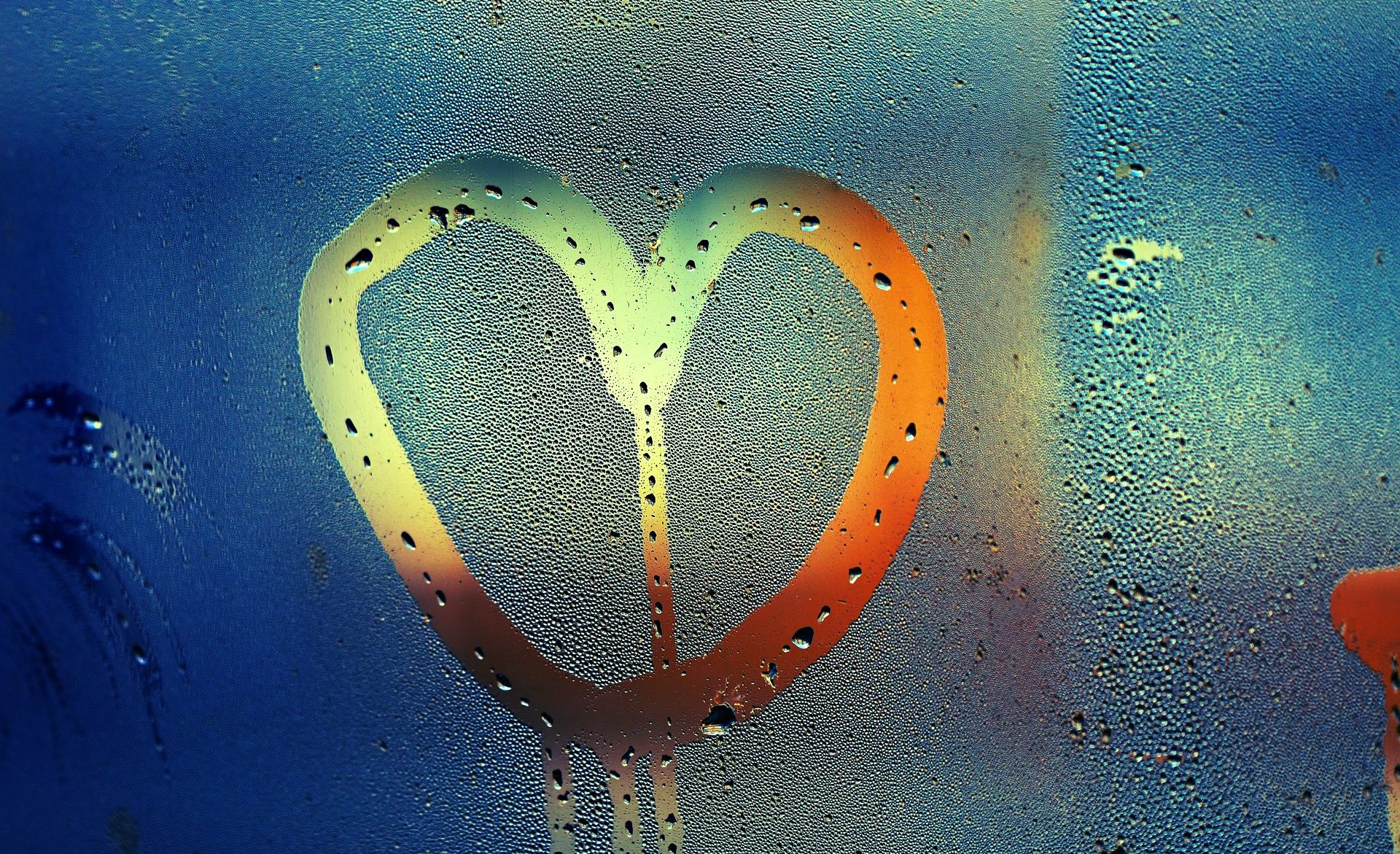

Photo Credit
Feature: Congerdesign via Pixabay
Bubbles: Alexas_Fotos via Pixabay
Hope in Boston: David Betesh
Heart: Mabel Amber via Pixabay
